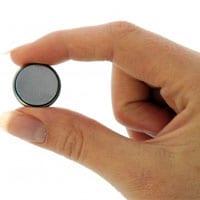Button Battery Safety Procedures
Large Increase in “Button Battery” Injuries
Every year in the United States, more than 3,500 people accidentally swallow small or “button” batteries. These are found in most homes, used to power hearing aids, watches, toys, games, flashing jewelry, singing greeting cards, remote control devices, and many other items.
Swallowing button batteries can result in severe injury and even death, particularly when the batteries that become lodged in the throat or intestine and release hydroxide, resulting in dangerous chemical burns.
A recent study conducted by Dr. Toby Litovitz of the National Capital Poison Center, found that found that button battery-related incidents resulting in severe injury and fatality have increased sevenfold since 1985. Most incidents involve children younger than four years old and senior adults. In the majority of incidents, children gain access to batteries directly from games, toys, calculators, remote controls and other items commonly left within a child’s reach.
Parents often are unaware that a child has swallowed the button battery, which makes it difficult to diagnose the problem. In fact, in the recent study, more than 60 percent of reported incidents initially were misdiagnosed. Symptoms resemble ailments common in children, such as an upset stomach and fever, and in some incidents, there are no symptoms at all.
CPSC recommends the following steps to prevent unintentional battery ingestion:
• Discard button batteries carefully.
• Do not allow children to play with button batteries, and keep button batteries out of your child’s reach.
• Caution hearing aid users to keep hearing aids and batteries out of the reach of children.
• Never put button batteries in your mouth for any reason as they are easily swallowed accidentally.
• Always check medications before ingesting them. Adults have swallowed button batteries mistaken for pills or tablets.
• Keep remotes and other electronics out of your child’s reach if the battery compartments do not have a screw to secure them. Use tape to help secure the battery compartment.
• If a button battery is ingested, immediately seek medical attention. The National Battery Ingestion Hotline is available anytime at (202) 625-3333 (call collect if necessary), or call your poison center at (800) 222-1222.
Button batteries may also cause permanent injury when they are placed in the nose or the ears. Symptoms to watch for are pain and/or a discharge from the nose or ears. Do not use nose or ear drops until the person has been examined by a physician, as these fluids can cause additional injury if a battery is involved.
Also read: Bathtub toys recalled






Comments are closed.